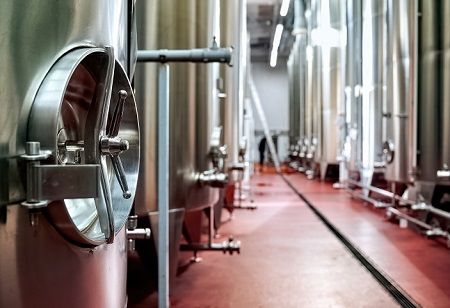
KBK Biotech, a manufacturer of Alcohol Spirits, has partnered with Leaf by Lesaffre to achieve profitability goals. Indeed, KBK’s main objective was to increase fermentation efficiency, for which Leaf by Lesaffre provided ethanol red. The supply of ethanol red has helped KBK complete the production targets by securing a higher yield of alcohol and achieving 16% v/v alcohol in fermenters with 40% Jowar and 60% broken rice.
For the success of distilleries, many other factors need to be considered, including great attention to detail and a broad understanding of the distillation process. Let us explore some of the effective steps for establishing a successful distillery plant.
As the distillery plant is involved in the massive production of beverages, there is a need to establish adequate quality and treatment. More importantly, water is a critical element of the distillation process and can impact the flavor. From the organization's point of view, to achieve the brand reputation and regulatory compliance, it is crucial to maintain consistency in water quality as the products are offered to a huge audience segment. Water treatment plays a vital role in the eradication of contaminants and is less likely to cause equipment damage. Moreover, they also assist in maintaining the proper chemical balance, which is much needed for the distillation and fermentation process.
For instance, The Glenmorangie Distillery Co, based in Scotland has funded considerably in water treatment systems to safeguard local water sources, mainly the Dornoch Firth, which they fetch water from. They focus on latest biological treatments to purify wastewater before it's released back into the environment.
Rahul Tandon, Head- Industrial & Commercial Business, Bharat Petroleum Corporation says "Utilizing satellite imaging, drones, and other remote sensing tools, companies can monitor environmental indicators such as air and water quality, vegetation health, and wildlife habitats in real-time"
In this modern era, wherein sustainability is at its peak, there is a considerable need for a proper waste disposal system and recycling mechanism that helps in the smooth operation of distillery plants. As a part of the process, distilleries usually consume large quantities of water, and recycling lessens water usage, helping reduce costs and conserve resources. The state-of-the-art water recycling systems ensure a proper supply of quality water, essential for the production processes and consistent product quality. Besides, it also helps align with the environmental regulations by reducing wastewater discharge and improving the overall distilleries plant sustainability goals. With the implementation of the latest recycling technologies, distilleries can improve efficiency in operations, making the plant more profitable and aligning with sustainable objectives.
Diageo has a distillery based in Cameronbridge, which has a cutting-edge anaerobic digestion facility that converts waste particles from the whisky-making activity into biogas. This biogas is utilized to strengthen the plant, lower its carbon and make the operation more eco-friendly.
Vikrant Palyekar, Director, Nutzen Engineering Solutions says "the industry is anticipated to grow significantly due to favourable legislative policies that encourage effective waste disposal and energy generation as well as rising energy demands from the end-use sector"
For the successful formation of a distillery plant, a lot of insightful research is required as the business landscape is dynamic, and investing in research and development (R&D) is paramount. R&D activities can lead to innovation in production, paving the way for unique products of high quality that can be distinguished in the competitive market. Moreover, it can also streamline operations through efficient fermentation and distillation methodologies, contributing to improved yields and lower costs. Tracing the raw materials becomes less complicated by R&D activities and enhances the spirits' flavor and consistency. Eventually, as the R&D stays ahead of the trends and regulatory changes, it makes sure the distillery plant becomes competent and relevant, contributing to success and continuous improvement.
Beam Suntory, a renowned beverage firm, funds research and development to purify its commodities and processes. The firm has developed the latest aging methodologies and new flavor profiles through considerable research. Its innovation center, based in Japan and Kentucky, focuses on everything from raw material selection to eco-friendly production methods.
Dr. S N Ullas, Founder, Verdant Building Alternatives says "Through extensive research and development, manufacturers are pioneering innovative solutions, from recycled materials to advanced composites, to reduce reliance on finite resources while improving performance"
All in all, many aspects have to be considered, and effective planning is required for the successful formation of a distillery plant. Usual activities such as business plans, finding the right location, investment and designing are the essential criteria for setting up the distillery plant, but to be successful in the long run, organizations need to pay attention to research and development (R&D), waste disposal systems and water quality treatment. These aspects can streamline the business operations of the plant to a longer extent and differentiate it in the market. Let it be any industry, for instance, the water treatment industry, chemical or Alcohol; it's all about having a dedicated and tactical approach that will open the way for a successful distillery plant.
We use cookies to ensure you get the best experience on our website. Read more...